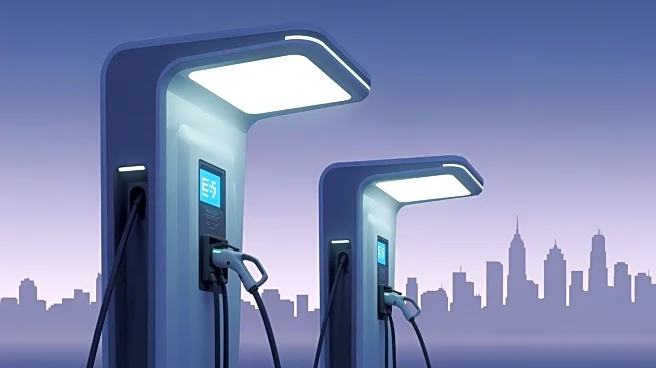What's Happening?
The auto industry is quietly progressing towards making electric vehicles (EVs) more affordable and increasing their range. Battery prices are expected to drop significantly, with predictions of a 70% decrease over the next five years. This reduction
in battery costs is anticipated to make battery electric vehicles (BEVs) more competitive with traditional gas-powered vehicles. The industry has seen gradual improvements in EV range, with models now offering 250 to 325 miles, and some mid-market and luxury vehicles expected to reach 400+ miles. This trend is exemplified by recent releases such as the 2026 Nissan LEAF and new Tesla models, which offer enhanced range and affordability.
Why It's Important?
The anticipated drop in battery prices and the increase in EV range are crucial for the widespread adoption of electric vehicles. As EVs become more affordable, they are likely to attract a broader consumer base, accelerating the transition from fossil fuel-powered vehicles to cleaner alternatives. This shift has significant implications for reducing carbon emissions and combating climate change. Additionally, the increased competitiveness of EVs may drive innovation and investment in the automotive sector, potentially leading to economic growth and job creation in related industries.
What's Next?
As battery prices continue to fall, automakers are expected to introduce more affordable EV models, potentially reaching price points that make them accessible to a larger segment of the population. This could lead to increased market penetration and a shift in consumer preferences towards electric vehicles. Automakers may also focus on expanding their EV offerings across different vehicle classes, further enhancing consumer choice and driving market growth. The industry may see increased collaboration and investment in battery technology to sustain this momentum.
















